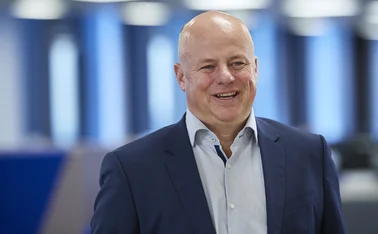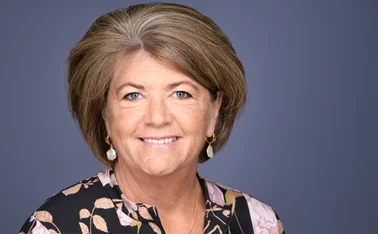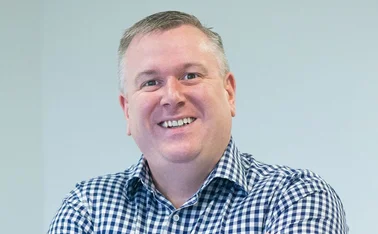
Broking success: Neil Hancock, director of Meadons Insurance Brokers

A captain’s innings: Meadons Insurance Brokers’ director Neil Hancock tells Insurance Age how the firm went in to bat with a cricket club scheme and why increasing regulation can be a sticky wicket
▶ What is the history of Meadons?
The business originates from the mid-1950s when a man called Richard Meadon started it. It was based around a rural market town doing a lot of farming business and agricultural insurance.
He had the business until the mid-1970s until Mike Kavanagh and Peter Lawson took over. They had it until 2004 when we did a management buyout. That was myself; Chris Bate, who was a commercial account executive; and Robert Lawson, who is Peter’s son. Robert predominantly looks after the IFA side of the business. The three of us already worked for the company when we did the MBO and we’ve had it ever since.
▶ What lines of business do you focus on?
Agriculture and farming is still one of our core products and makes up around 15% of what we do. We also have our cricket club scheme, which is Owzat Insure. We’re about 80% commercial and 20% personal lines. We also specialise in motor trade. We’ve got a healthy book of business – but we do a bit of everything.
Our client base spans a 25 mile or so radius from the office and covers Staffordshire, Cheshire and Shropshire. We are right on the border of the three counties. We take in Stoke, Stafford, Crewe, Nantwich, Whitchurch and Shrewsbury. A lot of our business is by recommendation.
We do a small amount of personal lines from our office in Market Drayton, a lot of that is commercially connected but we still have people who like to come in and sort their travel or home insurance.
▶ How has the business changed since the MBO?
The GWP has probably doubled since we took over. Lines of business haven’t changed dramatically. We took over in the October 2004 and in the January became regulated by the FCA [then FSA]. That was a challenge we had to take up the mantle for.
▶ You’re known for your cricket club scheme – where did that come from and how do you sustain it?
It originated from a cold start in 1997 – we’ve just celebrated 20 years. It started because I have been heavily involved in playing and administering local cricket. I’ve been chairman of the local club and things like that. I usually got tasked with dealing with insurance for the club and I felt there was a gap in the market. There did not seem many competitors to the England and Wales Cricket Board (ECB) approved scheme.
There needed to be competition as the prices were a bit on the high side. Initially we targeted local leagues and that gave us some success. It became evident after three or four years that if we wanted to expand we needed to wholesale it to other brokers. Now we do about £700,000 in GWP each year and we wholesale it to well over 100 brokers. We’re part of Cobra so we work with other members too.
Aviva provides capacity for the scheme. We always look to expand it if we can.
▶ Do you need a passion for the topic to provide a good scheme?
You have to have some involvement or some passion for it. We need people in the office who understand clients’ needs and requirements.
▶ What is the value of your Cobra Network membership?
There is access to insurance and we get compliance support. They also negotiate bespoke facilities and schemes with certain providers at enhanced rates or commissions. We’ve been with them since 2007.
▶ What is the market like in Shropshire? Do you have local rivals?
There is only one other broker in Market Drayton and we have a gentleman’s agreement not to poach each other’s business, so we get on well. Their area is slightly different to ours though. Some of the bigger brokers in Shrewsbury or Stoke-on-Trent may affect us but we don’t tend to get too much from the big boys in Birmingham. I would say our biggest competitor is the NFU.
▶ Which insurers do you work with?
Our main insurer is Aviva. We are a Club 110 member and that means we have more than £1m of commercial business with them. Then we have the key Cobra partners – the usual composite insurers – and Cobra London Markets and Cobra Underwriting. We don’t use unrated insurers if we can avoid it.
▶ Do you get a lot of approaches trying to buy you?
There is a lot of consolidation and we see that GRP, PIB, County Group and brokers like Aston Scott are very active. It goes in cycles where principals are looking to exit. We’re in a different position as my fellow directors are 10 years younger than me – I’m 57. We’re more interested in bringing someone into the business but you never rule a sale out.
I felt there was a gap in the market. There did not seem many competitors to the England and Wales Cricket Board (ECB) approved scheme

▶ How do you feel about regulation?
It is difficult. There are the extra costs we have to build in to our fees to pay for it. On the positive side it has made us more professional. Sometimes we think as an independent we get saddled with the aggregators, call centres and direct insurers and get penalised due to the regulation that needs to be in place for those organisations.
Commission disclosure is a good illustration of this. We’re obligated as a broker to ensure the client shops around but isn’t that what we do anyway? I don’t think this sort of rule is as relevant to us [brokers] as it is to others. There is also the Insurance Act, which we embrace, but it was a painstaking exercise to do fact-finder forms for our clients.
▶ Are you members of Biba – what do you think about the association?
They do a very good job. They work very closely with the government and FCA and try to influence them and act in the interests of their members.
▶ What are the main challenges impacting regional brokers at the moment?
I think regulation and new legislation, for example GDPR. We’re just gearing up for that. There’s also things like how Brexit will affect us.
▶ What are your 2018 plans for the business?
We need to continue to grow – 2017 was a decent year and we had about 7% growth. We’d be looking to follow on similar lines. And, although we’re not like big providers with acquisitions, we will keep our eye on local options.
Only users who have a paid subscription or are part of a corporate subscription are able to print or copy content.
To access these options, along with all other subscription benefits, please contact info@insuranceage.co.uk or view our subscription options here: https://subscriptions.insuranceage.co.uk/subscribe
You are currently unable to print this content. Please contact info@insuranceage.co.uk to find out more.
You are currently unable to copy this content. Please contact info@insuranceage.co.uk to find out more.
Copyright Infopro Digital Limited. All rights reserved.
As outlined in our terms and conditions, https://www.infopro-digital.com/terms-and-conditions/subscriptions/ (point 2.4), printing is limited to a single copy.
If you would like to purchase additional rights please email info@insuranceage.co.uk
Copyright Infopro Digital Limited. All rights reserved.
You may share this content using our article tools. As outlined in our terms and conditions, https://www.infopro-digital.com/terms-and-conditions/subscriptions/ (clause 2.4), an Authorised User may only make one copy of the materials for their own personal use. You must also comply with the restrictions in clause 2.5.
If you would like to purchase additional rights please email info@insuranceage.co.uk








